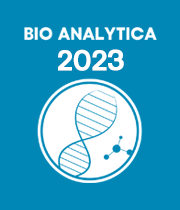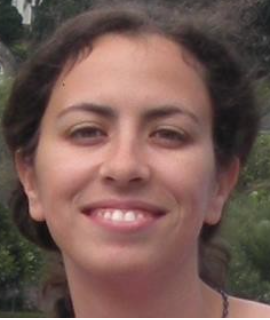Title: Molecularly imprinted polymers for isolation of quinic acid from coffee beans coupled with UHPLC-MS/MS detection
Abstract:
In this study, molecularly imprinted polymers (MIPs) were prepared for extraction of quinic acid (QA) a potent antioxidant and a precursor for the synthesis of many important compounds such as nicotinamide from coffee bean extract. Three different functional monomers were tested for imprinting; two of which were basic monomers (allylamine and 4-vinylpyridine (4-VP)), while the third monomer chosen was an acidic monomer; methacrylic acid (MAA). Rebinding studies revealed that the MIP prepared using 4-VP as functional monomer with template to monomer ratio of 1:5, had better binding performance than the MIPs prepared using the other monomers. Thus, it was chosen to be applied for selective extraction of QA from aqueous coffee extract. The optimized solid phase extraction procedure (SPE) was able to retrieve 81.918 ± 3.027% of QA with a significant reduction in the amount of other components in the extract. MIP reusability was also tested over ten adsorption–desorption cycles and showed a high recovery of QA (more than 93%) up to the fourth cycle. Selective extraction of QA was observed upon using the optimized SPE procedure on an equimolar mixture of QA, caffeic acid (CA) and chlorogenic acid (CGA). The recovery percent of QA was 82.30 ± 5.58, compared to 23.71 ± 2.85 and 33.41 ± 0.90 for CA and CLA, respectively. A newly developed UHPLC-MS/MS method was used in the determination of QA. The method was validated according to the ICH guidelines in terms of linearity, limit of detection (LOD), limit of quantification (LOQ), inter- and intra-day precision and accuracy.
Audience Take Away Notes;
- Plant extracts usually consist of a large number of closely related photoactive constituents. This imposes a challenge on the separation and extraction of a target constituent from plants. Molecularly imprinted polymers are polymers that are synthesized in a certain way that leaves recognition sites in the polymer matrix that have the ability to bind specifically to a wide variety of molecules ranging from small drug molecules to large peptides or proteins. In the presentation, the audience will be informed about the application of MIPs in the extraction of a target compound (QA)
- from plant extract (coffee beans aqueous extract). The synthesis process and the evaluation of the performance of the MIPs will be discussed. The optimization of solid phase extraction procedure for application to coffee beans extract will be thoroughly presented.
- This will help the audience in the design of similar approaches for isolation of other plant constituents, or for pre- concentration of certain constituents from different matrices.
- The audience will be shown how to design a cost effective, rapid, robust and reliable method for extraction of photoactive constituents.


